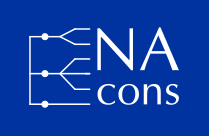The recommendations given in August 2020 by the European Strategy for the Particle Physics (ESPP) reveal at least six important pillars for engaging the consolidation of the NA. Here are the 6 corresponding statements extracted from the ESPP report:
1. Quest for Dark Matter support
“Experiments that offer potential high-impact particle physics programs should be supported”. Specifically, apart from LHCb and clear support to KEK – BELLE-II, accelerator based fixed-target experiments that can perform sensitive and comprehensive sub-GeV searches for dark matter should be supported”. To obtain these goals, precise and reliable beam instrumentation is needed which is foreseen to be installed during NACONS as well as new beam splitters in TDC2 for the experiment BDF.
2. Proton structure understanding
“Independent determination of the proton structure would be desirable (...). A program based on fixed target experiments (...) has been advocated in Europe.”
3. Strong focus on instrumentation R&D
“Detector R&D programs and associated infrastructures should be supported at CERN, national institutes, laboratories and universities”
4. Physics Beyond Colliders (PBC)
“Many of the PBC proposals are on a scale that can be considered for approval in the usual manner by the scientific committees and the Research Board”
5. Strong Neutrino platform support
“The community is very keen for the Neutrino Platform to continue operation at CERN for the benefit of the worldwide neutrino community
6. Energy consumption, sustainability, and efficiency
“Refurbishment and upgrading old infrastructures are crucial for keeping this in mind”, as well as “continue research for new greenhouse-friendly gases”
In order to meet these requirements and prepare the North area for the further development of experiments, several adjustments, renewals, and updates are necessary, which will be described in more detail below. As seen in the figure above the project is broken into five main domains of activities to be coordinated.
